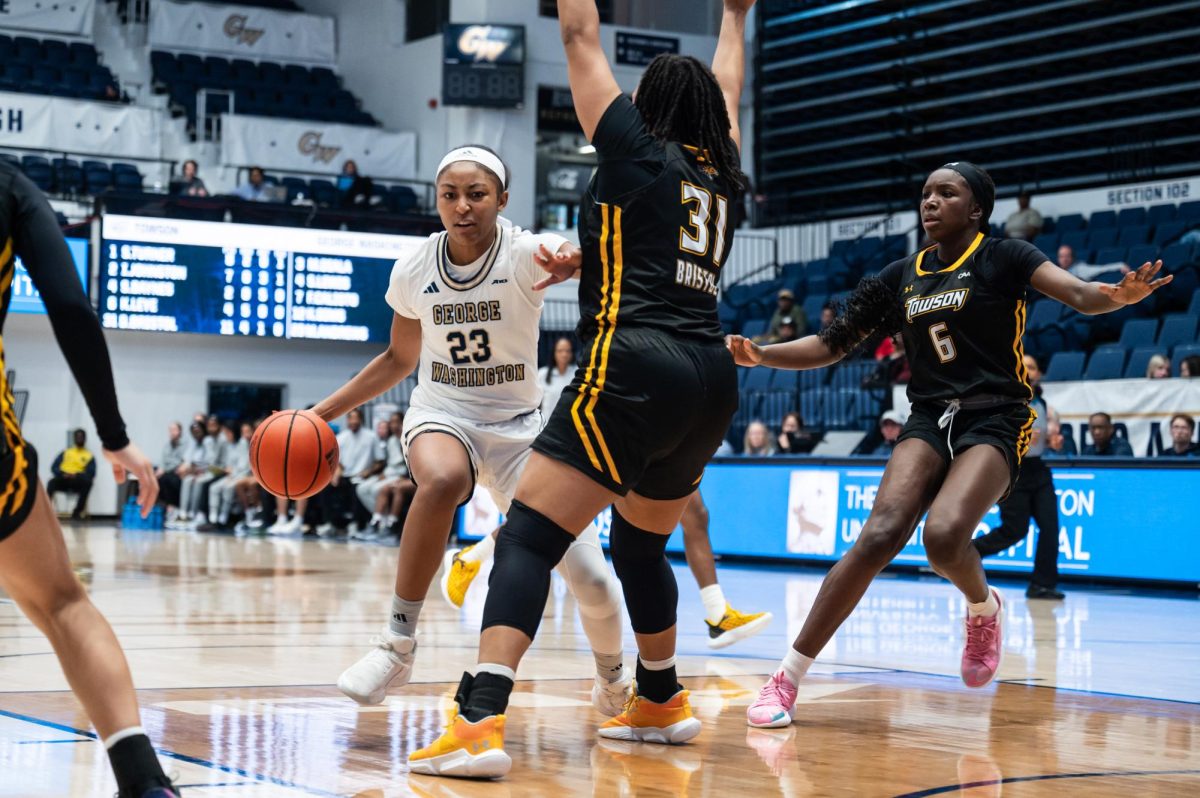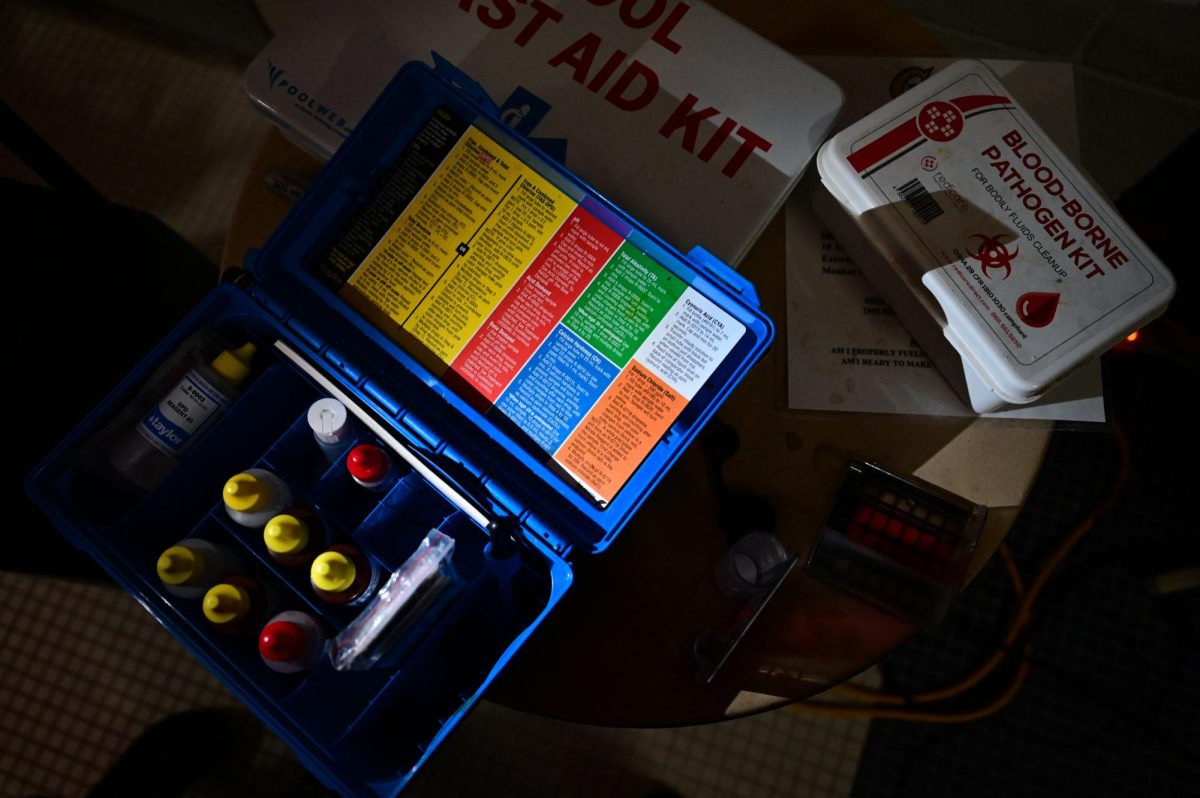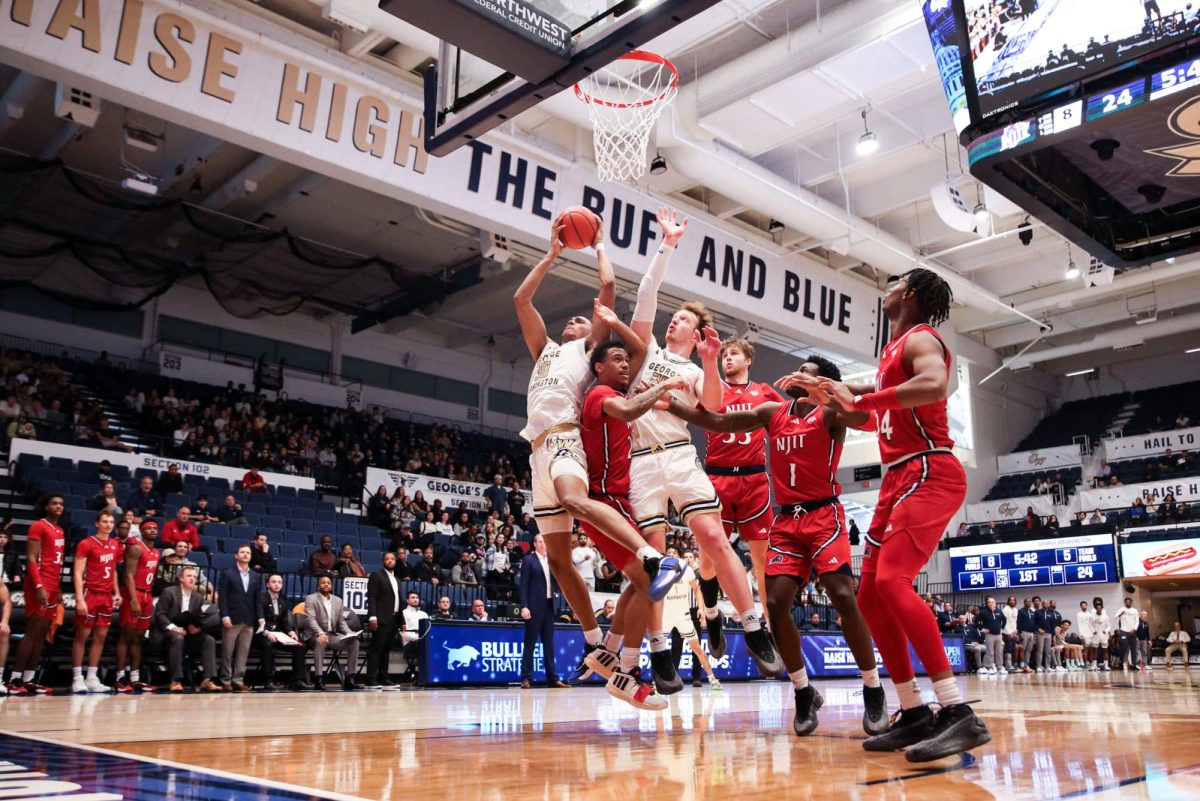The University’s highest governing body is preparing a comprehensive review of GW Athletics – one that will assess the direction of the department and the varsity, intramural and club sports it houses.
The Board of Trustees appointed New York Yankees Team President and alumnus Randy Levine to oversee the review that comes on the heels of athletic director Jack Kvancz’s retirement after 17 years as the department’s leader.
Board of Trustees Chairman Russell Ramsey said while Kvancz’s retirement makes the timing of the review convenient, the impetus came from a desire to maximize GW’s assets.
“We’ve been kicking around the idea of, ‘How do we take advantage of the newly renovated Smith Center?’ and there were a number of ideas that came forward. And then when Jack indicated that he was going to retire, he turned 65 I believe in August, it just kind of crystallized,” Ramsey said. “It’s obviously no secret that a high-performing athletic department in a University can create school spirit, it can enhance the national visibility. It’s fun, and it brings together multiple walks of life,” he added.
Ramsey said the review is unrelated to the frustrations over GW’s two flagship athletic programs: the men’s and women’s basketball teams. After a rocky start this season, the men’s team has improved and currently stands as No. 5 in the Atlantic 10 conference. This has not quelled some students and fans from calling for head coach Karl Hobbs’ removal. The women’s team faced its worst loss in the program’s history to Temple Wednesday.
“[There’s] no correlation to the basketball programs. We have two separate programs, two coaches, both in the middle of contracts, and both part of the overall review. But no different than baseball, lacrosse, swimming or golf,” Ramsey said. “This isn’t because anything’s broken. We graduate our student athletes, I think, at one of the highest levels in the [A-10]. We have good programs across the board.”
Ramsey said the committee would hold an organizational meeting within the next month and would ideally have its strategic plan ready by the time students return to campus in the fall. The committee will take a holistic look at athletics across GW, but Ramsey said he saw potential for immediate and tangible upgrades.
“Obviously there are some places where you can have an impact short term. I mean, baseball for example, has had amazing [success], both graduation to the professional levels as well as highly acclaimed individual players with very limited facilities,” he said. “So we’re gonna look at how we can maybe enhance and help their facilities. So it’ll be across the board.”
Beyond Levine, the committee will be filled by a combination of Board members and University administrators.
“This is about getting better. As president of the Yankees, we have a philosophy here. My philosophy is always to be a champion,” Levine said. “That’s our goal every year, championship-caliber quality. And hopefully that’s what I’m gonna try and bring to my responsibility on this committee, to see how can we get better.”
A steering committee that will report to the larger committee on athletics will be populated with members of the GW community including alumni, staff, faculty and students. Both Kvancz and Senior Vice Provost and Senior Vice President for Student and Academic Support Services Robert Chernak said the steering committee would likely break down from there into sub-committees to isolate and address specific issues, but both added that planning for the committee had not yet reached that point.
In terms of selecting a new athletic director, Ramsey said the committee won’t be a part of the official decision-making process but will have input in the search for Kvancz’s replacement.
“The University administration, led by Chernak, will conduct a search for the athletic director, but given that this special committee is gonna be performing its duties at the same time as that’s gonna be ongoing, there will definitely be cooperation between that process and this one,” Ramsey said. “They’ll be in lock step. I think that’s the other fortunate part about the timing.”
Ultimately, Ramsey said, the goal will be to turn GW into a school with teams that consistently compete at high levels, in the mold of other successful private universities around the country.
“Nobody’s gonna mistake us for Duke today, but they’re a private school, we’re a private school. They have 22 Division I sports, we have 22 Division I sports,” Ramsey said. “We’re the largest University in Washington, D.C., we’re growing and doing a lot of great things.”






